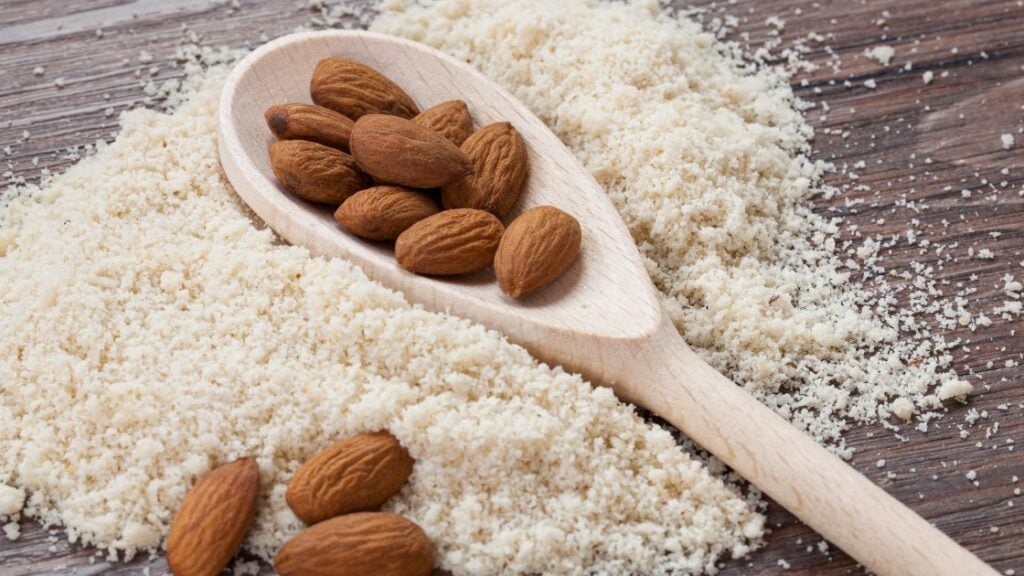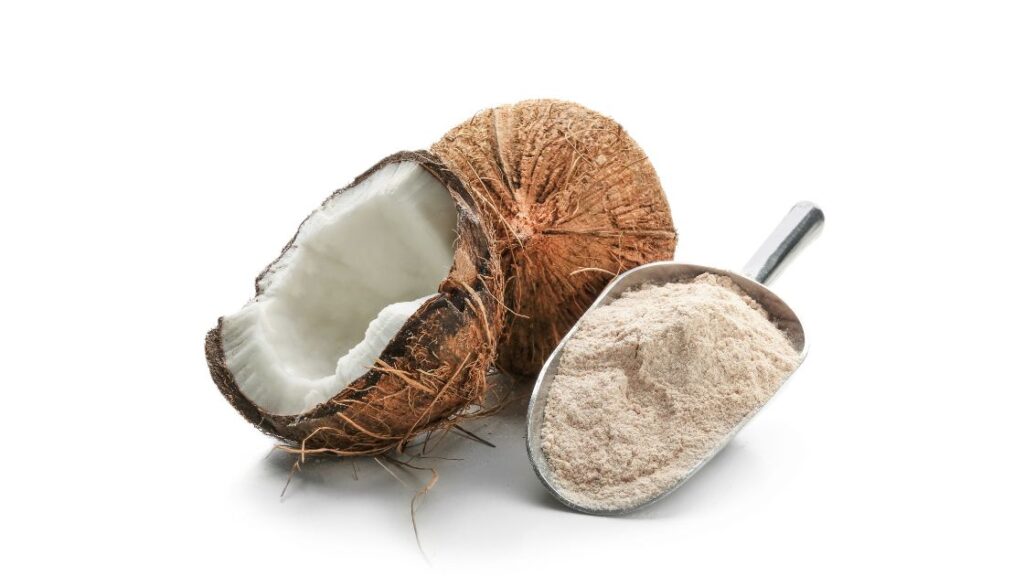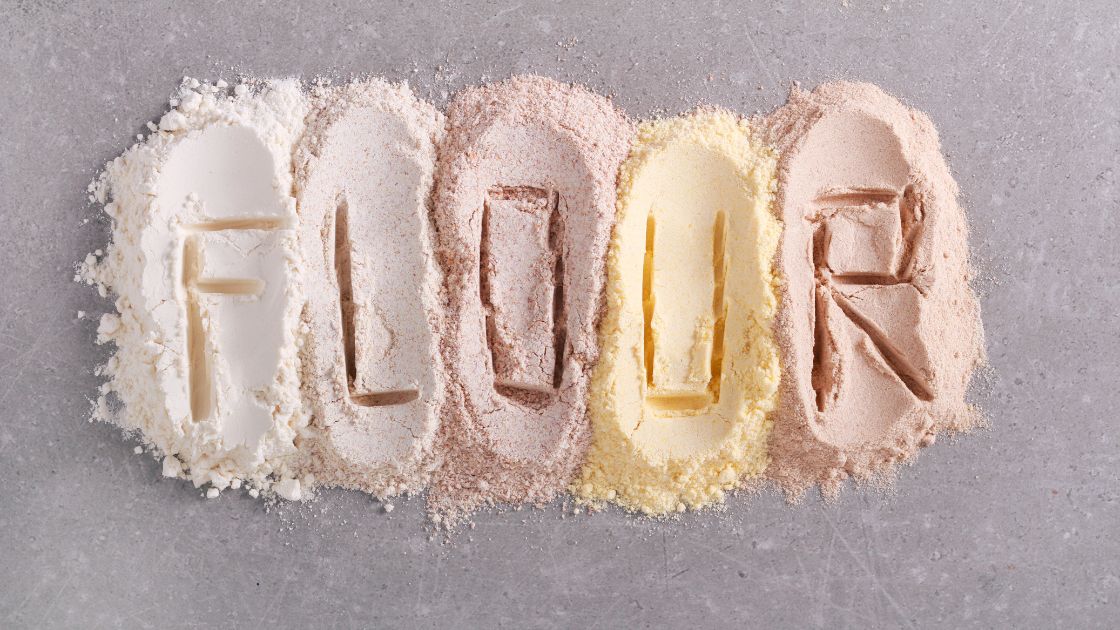Committing to a low-carb diet has never been so easy. Recipes and blog posts are popping up all over with inspirational ideas to follow a low-carb lifestyle – so much so that the list of low-carb flour can even be overwhelming.
Newbies to the low-carb craze can easily be confused by all the alternatives available, and you can easily lose yourself in aisle after aisle in the health food section. Do not fret, where are here to help cut the wheat from the chaff (so to speak)
In this blog post, we’ll be covering everything you need to know about low carb flour, from its different types and benefits to how to use it effectively in baking recipes. So whether you’re looking for a healthy gluten-free substitute or just want to enjoy baking recipes that are low in carbs, you’ll definitely want to check out some of these options!
What is Low-Carb Flour?
Low-carbohydrate flour is similar in form and function to “regular” wheat flour, but the source is different. Instead of wheat and nuts, low carb flour is derived from nuts, seeds, or legumes. So if you’re looking for a way to add fibre and carbs to your diet without breaking your keto diet, these flour alternatives are the perfect option for you.
Keto flour has been specifically designed to help keto dieters maintain their blood sugar levels and lose weight. It has a low glycemic index, which means it doesn’t spike and drop your blood sugar levels as quickly as other carbs. This makes low carb flour a great option if you’re looking to stick to a low-carb diet while on the go or if you’re looking to lose weight.
It is also worth a mention here that most of these flours are higher in fat, as nuts, for instance, have a higher calorically dense fat. If you are trying to reduce your fat and carb intake, you might want to steer clear of the nut varieties and look at low-fat, keto flour, like soy.

How is Low-Carb Flour Different From Regular Flour?
Aside from the lower carb count, as we’ve illustrated, wheat also contains gluten, which can cause havoc on people with an intolerance.
Now, most people are familiar with and experienced baking with normal wheat flour, but there are some differences in the flavors and textures in the low-carb alternatives. Different flours from different sources will react differently. For instance, flours high in protein will be more prone to clumping or can burn quickly.
All that this means for you would-be chefs and bakers is that you should stick to your low-carb recipe. For the braver among us, feel free to play with different ratios and textures until you have perfected your craft.
Finally, low-carb flour has many health benefits, including reducing weight and improving blood sugar levels. Which leads us to our next topic;
Benefits of Using Low-Carb Flour
If you’re looking to ditch wheat and other grains from your diet and lower your carb intake, low-carb flour is the perfect option. Not only is it low in carbs, but it’s also gluten-free, with a plethora of other health benefits. Let’s take a look.
Weight Loss
Our first point should be the most obvious one. People ditch carbs to lose weight. No one likes to calorie count, so the focus is more geared towards mindful eating. Low-carb diets are gaining ground as popular ways to shake a few pounds without starving yourself – it is about what you eat.
Improved Brain Function
Sugar has a spectacular effect on the brain – in all the worse ways possible. It increases sugar cravings and fatigue, for a start. Normal, high-carb flour converts to sugar, which in turn wreaks havoc on your insulin levels and fat-storing capabilities.

Low-carb flour, on the other hand, is quite high in good fat, as we’ve previously illustrated. Good fats act like antioxidants, and support the neurotransmitters in your brain responsible for memory, and learning. Who knew… your brain needs healthy fat to function properly.
Lower Risk for Type-2 Diabetes
The onset of Type 2 Diabetes can be prevented by reducing the amount of starch in your diet. High carbs in starch ultimately convert to sugar, which in turn raises your plasma glucose and insulin levels. These elevated levels have a knock-on effect by increasing the risk of heart disease, diabetes, high blood pressure, and obesity.
No More Cravings
Doesn’t that sound great? Low-carb baking or cooking ensures that you are eating enough proteins and fat, instead of sugar and junk. This flips the switch on ghrelin, your hunger hormone. Cutting down on carbs will actually switch on your body’s satiety hormones, so you feel less hungry, prone to cravings, and can last longer between meals.
Types of Low-Carb Flours
There are many types of keto flour available on the market, so it’s important to know which one is right for you. Some popular options include almond, coconut, and soy flour.
Make sure to select a flour that has been specifically designed for low-carb baking. It is worth a mention that those with nut allergies should steer clear of the source, and opt for some non-nut alternatives.
Almond Flour
Almond flour is a great flour choice for baking and cooking. It has a delicate flavor that can be used in many recipes to replace regular wheat flour. Additionally, almond flour is gluten-free, and it is an excellent carb-free substitute. It is a firm low-carb favorite because of its subtle yet rich flavor and texture.

You can substitute almond flour 1:1 for normal flour, so the recipes are easy to follow. You might just have to add an extra egg to the mix to act as a binding agent. Almonds are high in polyunsaturated fats, magnesium, and vitamin E.
Coconut Flour
Coconut flour is a great substitute for wheat flour in low-carb diets. It is high in fiber content, which helps keep you feeling full and satisfied longer. It has a distinct coconut flavor and a creamy texture with a hint of sweetness. The flavor is incredibly versatile, and goes well with curries, smoothies, and baked goodies – it is the ultimate ingredient.

Coconut flour does absorb large amounts of liquids, so you can’t substitute it 1:1. Instead, for every cup of normal flour, use ¼ to ½ cup of coconut, and one egg.
Flaxseed Meal
Flaxseed is a great plant-based flour replacement that is low in glycemic index and rich in fiber. The flour is made by crushing the little seeds into fine dust, and it can be used for baking, smoothies, and even as a salad topping!
Flax is part of the superfood family, with healthy fats and lignans to balance hormones. It is distinctly nutty, but the meal is a little bit more complicated to use than nut flour.
For every cup of wheat flour, use ⅓ cup of flax, with a tablespoon of water, or milk, if you prefer a creamier texture. Flaxseed also makes for a great thickener or addition to any of the nut alternatives.
Chickpea Flour
Chickpea flour is a low-carb, gluten-free flour that can be used to replace all-purpose flour in baking recipes. It has a low glycemic index, making it ideal for people with diabetes or other carbohydrate restrictions.
It is worth a mention that chickpeas are higher in carbs than other flours on our list, but it is yummy, nutritious, and versatile. Use ¾ cup of chickpea flour for every cup of white flour. Because of their flavor, chickpeas are best used in savory dishes.
Chia Seed Flour
Chia seeds can be used to make all sorts of baked goods and desserts, as well as smoothies and yogurt. These tiny little seeds are high in omega-3 fatty acids and antioxidants.
Start slowly by adding small amounts to your recipes, and gradually increase the amount over time if you’re not sure how chia seed flour will behave or taste in them. The seeds themselves soak up liquid like nothing on our list, turning into a gel-like texture. This is why the seeds are ideal in smoothies, while the flour makes for tasty baked goods. To this end, you can simply substitute chia flour on a ratio of 1:1.
Cut Out the Carbs
If you’re looking for a regular flour substitute that is low in carbs, low in calories and gluten-free, then low-carb flour is the perfect flour for you! As we have illustrated, a low-carb or keto diet will improve your weight management, and heart health, along with a plethora of other health benefits.

Reinette Robbertze is a highly qualified professional in the health and nutrition industry, having completed both Journalism and Nutrition diplomas. With a remarkable portfolio of health blogs and magazine articles to her name, Reinette’s writing is fueled by her genuine passion for healthy living. Drawing on her academic background, Reinette delivers authentic and insightful information to her readers. Her engaging writing style, blended with personal anecdotes, creates an immersive experience that keeps readers engaged and informed. Keep following her work for the latest updates and informative articles on health and nutrition.







